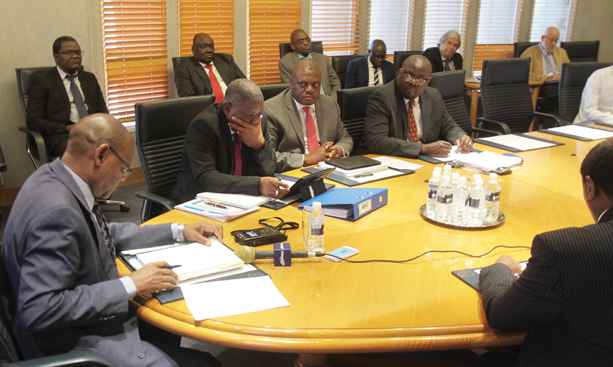The recent fuel price hike is expected to increase locals’ financial struggles due to its effect on the inflation rate.
The Central Bank’s Monetary Policy Committee (MPC) has warned that inflation will rise in the short term.
Patriot Business talked to Economics lecturer at the University of Botswana Economics, Professor Happy Siphambe on what this means for the consumer. He was quick to state that the increase in inflation is most harmful for the pockets of fixed income consumers as they have no protection, giving example of those on pension, students with fixed allowance and of the unemployed. This will include those working for programmes such as Ipelegeng.
He said the country’s inflation is determined by both domestic and international factors such as the recent fuel price increase. He, however, noted that inflation has been low and stable for most of 2018 and has only began to increase in the last quarter mainly due to domestic fuel prices.
“Inflation increased from 2.9% to 3.6 percent between September and October 2018 and is expected to edge up slightly in the short term,” he said, adding that the average Brent Crude oil price increased from USD74.25 to USD78.25 per barrel during this quarter.
He said the main contributing factors were the unwillingness by Organisation of Petroleum Exporting Countries (OPEC) to increase their production outputs and the negative impact of the hurricanes on petroleum infrastructure in the USA during this period.
Decrease in purchasing power
Another impact expected from the rising inflation is the decrease in the purchasing power of the public.
“Those on debt will however benefit from the rising inflation as the actual money they repay is less in real terms than what they borrowed,” explained the Professor.
In order to surf the financial tide without getting swept under the waves, Siphambe advised those on flexible incomes to adjust their real incomes to cushion themselves against the inflation.
He also advised those in formal employment to motivate for inflationary adjustment during collective bargaining. “If they are successful in negotiating with their employers, they would be able to restore their purchasing power,” he said. He, however, also noted that experience for Botswana is that employees rarely get full inflationary adjustments, if they do get any salary adjustments at all.
Bank rate
Siphambe said savings will be eroded given that the Bank of Botswana has also maintained the rate at 5 percent.
Asked on the effects of the expected fuel increase expected before the end of the year, Siphambe said the December 2018 fuel price hike is expected to further increase inflation locally. “It is unlikely however given the anticipated magnitude of inflation expected that it will is going to increase beyond two percentage point, meaning that it will still be within the Bank of Botswana medium term objective of 3-6 percent,” he said.
Responding to a question on what would happen if the figures went above the central bank’s objective range due to the expected frequent fuel prices in the future; Siphambe said the monthly inflation is not likely to exceed 5 percent in the medium term even with expected increases in fuel prices in December.
“What is going to be more than 5 percent is the cumulative monthly inflation effect which does not require policy change, except if it was persistent and requires Bank of Botswana policy response,” he said.
He said it was however not likely to be prolonged and persistent given the changes in international economy which are the main causal factors currently.
He said inflation is not likely to be more than 5 percent given the current economic conditions, including the expected increase in oil prices.
“Should circumstances change drastically, which is not likely now, Bank of Botswana will review the situation and make appropriate policy responses,” he said.
